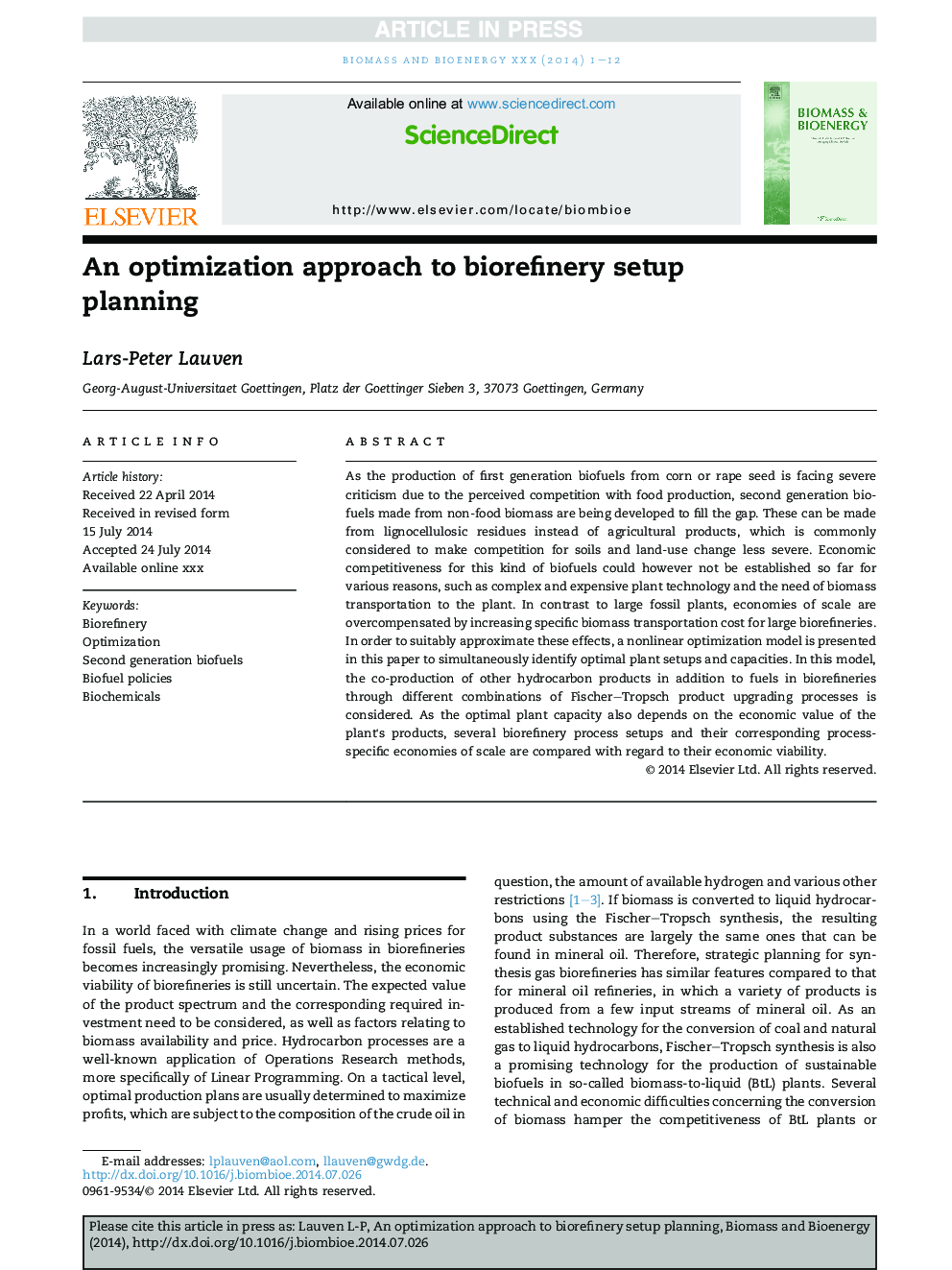| Article ID | Journal | Published Year | Pages | File Type |
|---|---|---|---|---|
| 7064235 | Biomass and Bioenergy | 2014 | 12 Pages |
Abstract
As the production of first generation biofuels from corn or rape seed is facing severe criticism due to the perceived competition with food production, second generation biofuels made from non-food biomass are being developed to fill the gap. These can be made from lignocellulosic residues instead of agricultural products, which is commonly considered to make competition for soils and land-use change less severe. Economic competitiveness for this kind of biofuels could however not be established so far for various reasons, such as complex and expensive plant technology and the need of biomass transportation to the plant. In contrast to large fossil plants, economies of scale are overcompensated by increasing specific biomass transportation cost for large biorefineries. In order to suitably approximate these effects, a nonlinear optimization model is presented in this paper to simultaneously identify optimal plant setups and capacities. In this model, the co-production of other hydrocarbon products in addition to fuels in biorefineries through different combinations of Fischer-Tropsch product upgrading processes is considered. As the optimal plant capacity also depends on the economic value of the plant's products, several biorefinery process setups and their corresponding process-specific economies of scale are compared with regard to their economic viability.
Related Topics
Physical Sciences and Engineering
Chemical Engineering
Process Chemistry and Technology
Authors
Lars-Peter Lauven,
